Herbs For Overcoming Tiredness
Medicinal herbs have been used for thousands of years for their different therapeutic effects. Which ones should you take for tiredness and how should you prepare them?
Why are medicinal herbs effective in combating tiredness?
Herbs have a special role in combating tiredness. This is because many of them are adaptogenic, which means that they balance metabolism. Adaptogens are able to regulate specific systems: the immune system, nervous system, endocrine system, cardiovascular system and mental functions. So if your cortisol levels, for example, are too low, a particular adaptogen will raise them; if they are too high, then the same substance will lower them. In order to be termed as an adaptogen, the herb must:
- Cause minimal or no side effects
- Have a non-specific action ( increase resistance to negative influences and enhance immune system)
- Have a normalizing action (set metabolic processes at the optimum level).
In addition, many of the herbs mentioned below provide specific support for the adrenal glands, which are often exhausted when a person is suffering from tiredness. [Please seeAdrenal FatigueandTests for Adrenal Fatiguefor more information.]
Many people, who are recovering from long-term tiredness, have problems in sleeping and the following herbs can be very useful as natural relaxants and sleep inducers: kava kava, hops, valerian root and passion flower.
Bear in mind that herbs are powerful substances, used for centuries before pharmaceutical medicines were developed, and that, although natural, are not always harmless. Attention should be paid to the correct dosage, just as with any medicine.
Which herbs are specific for which condition?
Aloe Leaf Extract
This herb enhances your immune system and helps heal mucous membranes.
Ashwaganda
This is an ancient Indian herb which is used as a tonic and an anti-inflammatory remedy. It is also adaptogenic – it raises cortisol (produced by the adrenal glands) if the level is too low, and lowers it if the level is too high.
Gingko Biloba
Gingko biloba contains bioflavonoids, which improve blood circulation, as well as scavenges the free radicals, which are produced when there is excess cortisol in the body.
Ginger Root
Ginger is a useful root as it modulates cortisol levels, normalizes blood sugar and burns fat by increasing the metabolic rate. It also aids digestion by stimulating the production of digestive enzymes.
Holy Basil
This adaptogenic herb helps balance blood sugar, which is important if you have insulin resistance. It also lowers excess cortisol and protects adrenal reserves by sparing them from being damaged by the demands placed on them by chronic stress.
Kava Kava
This herb from the South Pacific is well-known for its calming effects. It has no known toxicity, but in large doses it has been used as a hallucinogen and causes lethargy with long term use. In doses of 100-300 mgs (milligrams) taken between 1 and 4 times a day, it is quite safe.
Korean Ginseng
This root is more suitable for men because it can have some adverse side-effects in women such as acne and facial hair. In men, it can increase vitality, but can also cause irritability and aggressiveness.
Licorice Root
This adaptogenic herb improves adrenal function by prolonging the availability of cortisol in your body, so that the adrenals are not put under the constant pressure of producing more cortisol. It increases energy and stamina and decreases symptoms of hypoglycemia [please seeHypoglycemia and Tirednessfor more information about hypoglycemia].
Some people get raised blood pressure from licorice root, and so it is worth having your blood pressure checked regularly. If you have low blood pressure, it may have a normalizing and thus positive effect. The other concern with licorice is that it can raise potassium levels in the blood, thus putting a strain on the heart. Again, regular checking should be carried out.
Marshmallow Root
This root soothes and protects the gastrointestinal tract.
Royal Macca
This is the Peruvian equivalent of ginseng. It’s adaptogenic and balances the adrenal glands. It also improves virility, energy and stamina.
Silymarin (Milk Thistle Seed), Buplerum, Dandelion Root, Beet Leaves, Burdock and Golden Seal
All these are liver nourishing herbs which repair and support liver function.
Siberian Ginseng
This form of ginseng is good for both sexes because it counteracts the mental fatigue, which so often accompanies tiredness. It is calming and increases vitality while normalizing blood sugar. A note of caution though – do not use it if you have high blood pressure.
St John’s Wort
A natural anti-depressant, St John’s Wort, lowers cortisol and increases serotonin.
Herbs to avoid
Certain herbs should be avoided during the process of recovery from tiredness and these include: ephedra (ma huang), cola nut and strong black teas, as they over-stimulate the body.
How should you prepare herbs?
Always start with low doses and follow instructions on the packaging. The following methods are a general guide only:
Tincture: take 10-15 drops in liquid, 3 to 4 times a day. Most tinctures are prepared with alcohol, which should be simmered off if you are allergic to it.
Fluid extracts: take 10-15 drops in liquid, 3 to 4 times a day.
Leaves: steep (cover in boiling water) one teaspoon of herbs in a cup. Strain after five minutes and add a little honey if desired.
Root: simmer gently without boiling one teaspoon of grated root.
[If you are suffering from adrenal fatigue, you may also want to look atThings you can if you have adrenal fatigue]

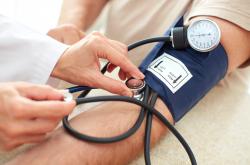
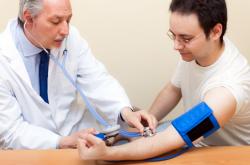
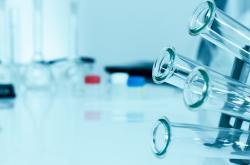
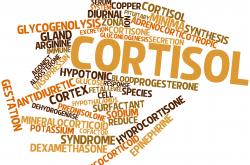



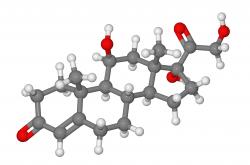
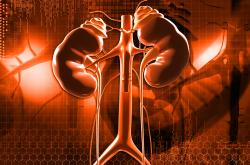


.jpg)





Leave a comment